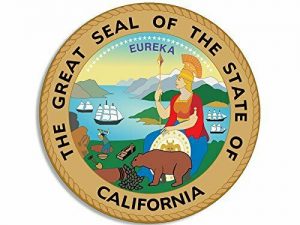In 1868, the California Legislature authorized the first of many ad hoc Code Commissions to begin the process of codifying California law. Each Code Commission was a one- or two-year temporary agency which either closed at the end of the authorized period or was reauthorized and rolled over into the next period; thus, in some years there was no Code Commission. The first four codes enacted in 1872 were the Civil Code, the Code of Civil Procedure, the Penal Code, and the Political Code. Statutes that did not fit these categories were simply left uncodified in the California Statutes.
The four original California Codes were not drafted from scratch but were mostly adapted by the Code Commission from codes prepared for the state of New York by the great law reformer David Dudley Field II. As a result of the Gold Rush, many New York lawyers had migrated to California, including Field’s brother, Stephen Johnson Field, who would ultimately serve as California’s fifth Chief Justice before being appointed to the U.S. Supreme Court. The strong New York influence on early California law started with the California Practice Act of 1851 (drafted with the help of Stephen Field), which was directly based upon the New York Code of Civil Procedure of 1850 (the Field Code). In turn, it was the California Practice Act that served as the foundation of the California Code of Civil Procedure. New York never enacted Field’s proposed civil or political codes, and belatedly enacted his proposed penal and criminal procedure codes only after California, but they were the basis of the codes enacted by California in 1872.
As noted above, the initial four codes were not fully comprehensive. As a result, California statutory law became disorganized as uncodified statutes continued to pile up in the California Statutes. After many years of on-and-off Code Commissions, the California Code Commission was finally established as a permanent government agency in 1929. In its first report, the Commission stated: “The California statutory law is in a deplorable condition … law writers and publishers unite in considering it the worst statutory law in the country.” To staff the new permanent incarnation of the Code Commission, the state Legislature simply appointed the Legislative Counsel as the secretary of the Commission. Thus, as a practical matter, most of the real work was performed by the Legislative Counsel’s deputies and then approved by the Code Commissioners.
The Commission spent the next 24 years analyzing the massive body of uncodified law in the California Statutes and drafting almost all the other codes. By 1953, when the Code Commission completed its assigned task and issued its final report on September 1 of that year, 25 Codes were then in existence. That year, the Legislature replaced the Code Commission with the California Law Revision Commission. Since then, the CLRC has been tasked with regularly reviewing the Codes and proposing various amendments to the Legislature. Most of these are simple maintenance amendments to ensure that statutory cross-references are properly updated to add new laws or omit laws which no longer exist.
The newest code is the Family Code, which was split off from the Civil Code in 1994. Although there is a Code of Civil Procedure, there is no Code of Criminal Procedure. Instead, criminal procedure in California is codified in Part 2 of the Penal Code, while Part 1 is devoted to substantive criminal law.

